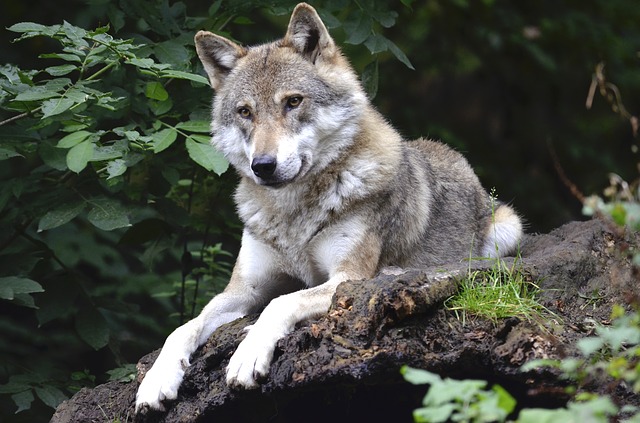
This gray wolf was captured on a remote ODFW camera in Mt Hood National Forest on Jan. 4, 2018.
The good news is that 12 wolf packs were documented in Oregon at the end of 2017. And 11 of those packs were successful breeding pairs. See the press release from the Oregon Department of Fish & Wildlife: Oregon home to more than 124 wolves; count finds 11% increase over last year 2017
On April 10, however, ODFW staff who were already in the area hazing wolves, shot and killed an uncollared yearling female wolf (scroll down the page) of the Pine Creek Pack on the private land where previous depredations occurred.
To learn more about the state of Oregon’s wolf population, see the 2017 Annual Wolf Report which ODFW staff will present to the Fish and Wildlife Commission at its April 20 meeting in Astoria.
Also, as I wrote previously, the commission will conduct additional facilitated outreach, and postpone final adoption of the draft Wolf Management Plan in the hope of getting more consensus from stakeholders. Therefore, the plan will not be considered for adoption at the April meeting in Astoria. ODFW will announce a new meeting date when it’s scheduled.
In the meantime, your comments on the draft plan can be sent via email to odfw.commission@state.or.us.
The Oregon Fish and Wildlife Commission consists of seven members appointed by the Governor for staggered four-year terms. Commissioners formulate policies concerning management and conservation of fish and wildlife resources, and establishes seasons, methods and bag limits for recreational and commercial take.



